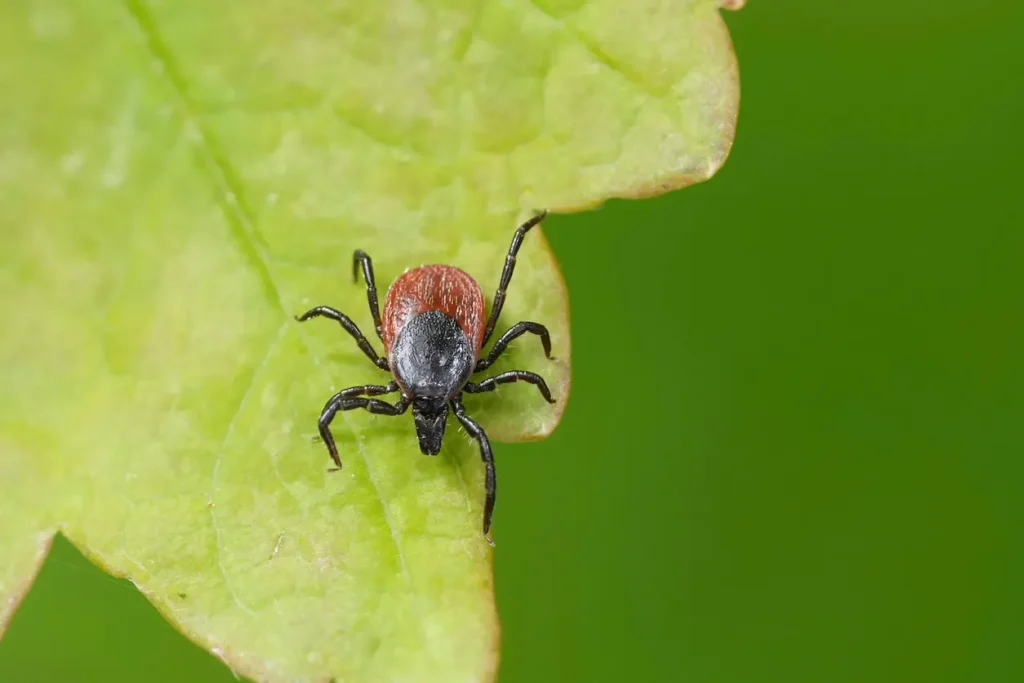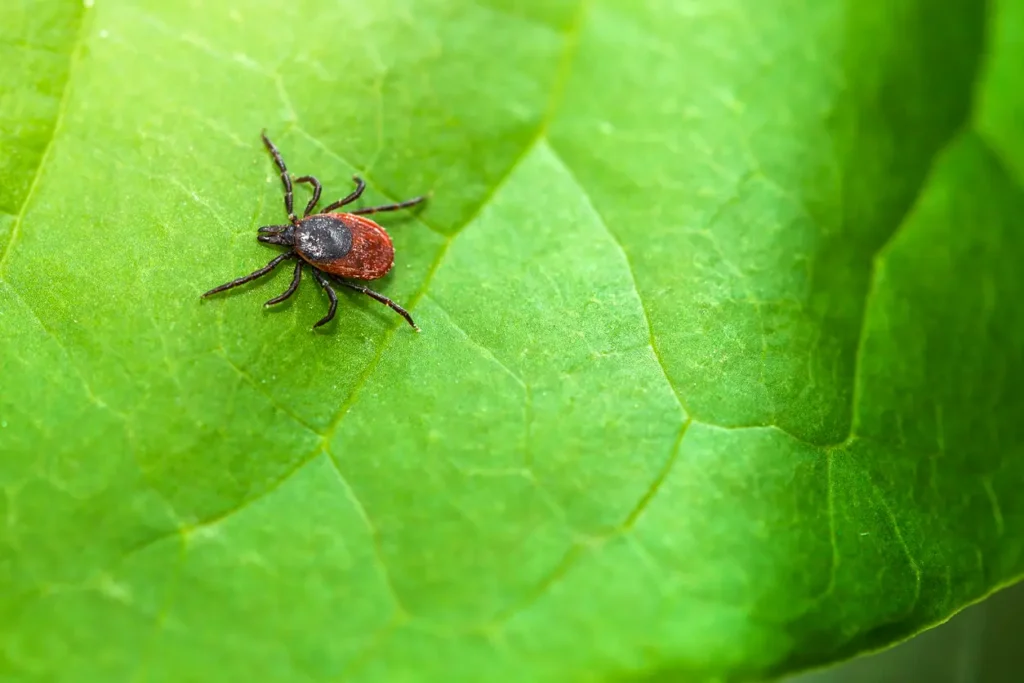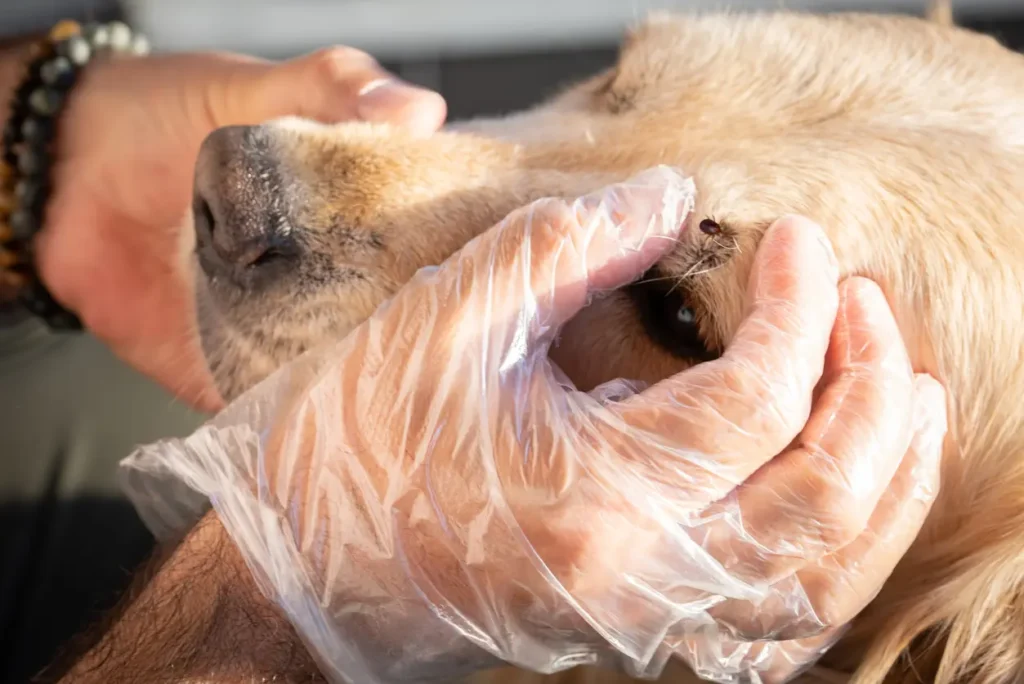
Tick Control Services in Berkeley County, SC
Berkeley County, SC, is a place where the charm of the Lowcountry blends with the beauty of natural landscapes—lush pine forests, winding creeks, and lakes that draw families outdoors year-round. But these same conditions—warm, humid weather, abundant wildlife, and shaded green spaces—create a perfect breeding ground for ticks. For families enjoying fishing on Lake Moultrie, hiking through Francis Marion National Forest, or simply relaxing in their backyard, ticks aren’t just an annoyance; they pose serious health risks for people and pets alike. That’s why professional, reliable tick control is essential to protect your loved ones and reclaim your outdoor spaces.
All U Need Pest Control brings decades of expertise in managing pests across South Carolina’s coastal and inland environments. By combining eco-friendly products with advanced techniques, we break the tick life cycle, reduce populations where you live and play, and create a lasting barrier against future infestations. Our approach is more than just spraying; it’s a strategic program that blends careful inspection, targeted treatments, environmental modifications, and homeowner education for immediate relief and year-round protection.
If ticks are making your yard, porch, or dog run a no-go zone, don’t wait for the next warm spell or heavy rain to cause a population boom. Call 1 (888) 239-BUGS or visit us online for a free consultation. We proudly serve neighborhoods and communities throughout Berkeley County, from Goose Creek, Moncks Corner, and Hanahan to Cane Bay, Daniel Island, and the rural outskirts near Huger and Jamestown.
Our motto? "If they're not dead, we're not done!"
Pest Control Services in Berkeley County, SC
- Ant Control
- Bed Bug Control
- Beetle Control
- Cockroach Control
- Flea Control
- Home General Pest Control
- Hornet Control
- Millipede Control
- Mosquito Control
- Pantry Pest Control
- Rat & Rodent Control
- Scorpion Control
- Silverfish Control
- Spider Control
- Stink Bug Control
- Termite Control
- Wasp Control
- Winter Control

Understanding Tick Behavior
Ticks are parasitic arachnids that feed on the blood of mammals, birds, and sometimes reptiles. In Berkeley County’s subtropical climate—with long, humid summers and mild winters—ticks remain active nearly year-round. Shaded, moist environments such as wooded edges, marshy patches, and overgrown lawns provide perfect shelter for ticks. Understanding their habits and life cycle is the first step toward protecting your home and your family.
In Berkeley County, the most common tick species include:
- Black-legged tick
- American dog tick
- Brown dog tick
- Lone star tick
These species thrive in the patchwork of dense forests, grassy edges, and wildlife corridors that are common across the county. Black-legged ticks, often linked to Lyme disease, favor leafy, shaded areas and can stay active even in cooler months. American dog ticks and lone star ticks are commonly found questing in tall grasses or along trails and fence lines, waiting to latch onto a passing host. The brown dog tick, notorious for infesting kennels and even indoor areas, is a persistent problem for pet owners, making year-round vigilance essential.
Tick activity in Berkeley County typically ramps up from spring through fall as humidity rises. Nymph ticks, though tiny—about the size of a poppy seed—are especially dangerous during late spring and summer because they’re harder to spot and capable of spreading disease. That’s why consistent prevention and post-outdoor checks are critical for anyone spending time in the yard, on trails, or by the water.
Here’s how to identify ticks:
- Fully grown ticks measure about the size of an apple seed, while nymphs are smaller, around the size of poppy seeds. Male ticks are usually smaller than females.
- Ticks enlarge considerably when they feed, swelling up with blood.
- A tick’s body is divided into a small head and a large abdomen.
- Ticks have four pairs of legs: the front two face the head, and the back two face the abdomen.
The county’s mix of dense pine woods, shaded yards, and breezy lakeside areas means ticks find many places to thrive. That’s why the professionals at All U Need Pest Control develop custom plans to address every stage of a tick’s life cycle and treat the exact spots where they hide, from wood lines and crawl spaces to flower beds and pet areas.

Risks Associated With Ticks
Ticks in Berkeley County can transmit dangerous diseases to both people and pets. While not every tick bite causes illness, the region’s outdoor lifestyle—from backyard barbecues and boating trips to afternoons at the park—means residents face higher exposure risks. Children, pet owners, and anyone spending extended time outdoors are particularly vulnerable.
Lyme Disease
Black-legged ticks are the primary carriers of Lyme disease, which can have serious long-term health effects. Early signs include fatigue, headaches, fever, and a distinctive “bull’s-eye” rash. Without timely treatment, Lyme disease can progress to joint pain, neurological problems, or even cardiac issues. Vigilant tick checks after time outdoors, wearing appropriate clothing, and maintaining your property can help minimize risks, while professional tick control drastically lowers the chances of encountering infected ticks around your home.
Rocky Mountain Spotted Fever
Transmitted primarily by American dog ticks, Rocky Mountain spotted fever (RMSF) is another potentially severe illness. Symptoms such as fever, headache, and a rash should never be ignored. If you develop symptoms after a tick bite—or find a tick attached—seek medical care right away. Reducing tick habitats and treating your yard effectively can cut your risk of exposure.
Tick Paralysis
Tick paralysis, caused by toxins in a tick’s saliva, can trigger weakness that escalates to more severe symptoms if not addressed quickly. Pets are especially susceptible, and in many cases, removing the tick resolves the issue. Consistent tick checks, veterinarian-recommended preventives, and professional yard treatments are critical in keeping your pets safe.
While it’s impossible to eliminate all risk, a layered strategy—landscape adjustments, personal protection, and professional tick control—dramatically reduces the likelihood of tick-borne illnesses for families in Berkeley County.

Signs of Tick Infestation
Early intervention can prevent a minor tick issue from turning into a full-blown infestation. In neighborhoods across Berkeley County, from suburban developments like Cane Bay and Crowfield Plantation to rural homesteads near Huger or Bonneau, here are the key signs that your property may need professional help:
Bites
Small, irritated bites—sometimes accompanied by redness or a rash—can signal tick activity. Some people may also experience fatigue, headaches, or fever following a bite, which should prompt immediate medical attention. Over-the-counter ointments may help with minor irritation, but monitoring for worsening symptoms is essential.
Ticks on Pets
Pets often bring ticks inside after spending time outdoors, especially near wooded edges, under decks, or around wood piles. Common spots to check include the ears, tail base, and between the toes. Regularly finding ticks on your pets is a sign that your yard may be harboring a population and needs professional assessment and treatment.
Tick Eggs
Clusters of tiny reddish-brown eggs in shaded, humid areas are a red flag. Because eggs and larvae often hide deep in leaf litter, crawl spaces, or kennels, complete elimination is rarely possible without professional intervention. Addressing eggs before they hatch prevents population explosions during the warm, humid months.
Ticks in Your Yard
Tall grass, thick shrubs, and shaded groundcover create the perfect environment for ticks. In Berkeley County, activity is often found along property edges, under azaleas and camellias, around stacked wood, or near sandy spots that hold leaf litter. If you’re finding ticks on pets or clothing after being in your yard, it’s time to schedule a thorough inspection.

Effective Tick Treatment Methods
At All U Need Pest Control, we combine advanced science with local knowledge to deliver results that last. After a detailed inspection, we build a customized plan based on your property layout, your family’s routines, and the unique conditions of Berkeley County.
Here are some methods we use to control ticks effectively:
Habitat Modification
Modifying your yard is one of the most powerful ways to reduce tick populations. By making your outdoor spaces less attractive to ticks, you can drastically lower your risk of infestation. Common habitat changes include:
- Seal any entry points to prevent ticks from entering your house
- Trim back shrubs, grass, and plants that might attract ticks
- Clear away firewood piles, rocks, and leaves that provide shelter for ticks
- Let more sunlight into shaded areas to dry moisture and deter ticks
In Berkeley County’s humid climate, we also recommend creating buffer zones between wooded areas and lawns, using gravel or mulch as barriers, and situating play areas or dog runs in sunny, well-drained sections of the yard.
Chemical Treatments
When landscaping adjustments aren’t enough, targeted chemical treatments can quickly bring tick populations under control. We focus on high-traffic areas like brushy edges, fence lines, under decks, and kennel perimeters, using professional products applied with precision to keep your family and pets safe.
Targeted Applications
For severe or recurring problems, precision treatments address harborage zones directly. By tailoring products to specific tick species and life stages, we deliver faster results while preventing quick population rebounds—a critical step in Berkeley County, where warm weather can extend tick activity for much of the year.
Education
We believe in partnership. Our team helps you understand where ticks are most active, how to reduce pet exposure, and which landscaping adjustments will have the biggest impact. Simple changes, like moving a woodpile or adjusting irrigation, can make a long-term difference.
Our comprehensive process includes:
1. Inspection
A detailed property inspection identifies tick habitats, travel corridors, and hot spots. This on-the-ground information guides a plan that addresses your home’s specific needs.
2. Treatment
We apply targeted treatments to areas where ticks hide and breed—edges, shady spots, crawl spaces, and pet areas—using timing and products optimized for Berkeley County’s seasonal conditions.
3. Maintenance
To keep your yard protected all year, we offer maintenance services timed to seasonal spikes, heavy rains, or landscaping changes that might disrupt the balance.

Pet-Safe and Eco-Friendly Solutions
Your family, pets, and the natural beauty of Berkeley County are our priority. That’s why our programs balance effectiveness with environmental responsibility.
Earth-Friendly Treatments
Whenever possible, we use products with botanical or reduced-risk ingredients, applying them precisely where ticks live rather than across your entire property. This targeted approach is tough on ticks but gentle on your yard.
Minimum-Risk Pesticides
We avoid broad, indiscriminate treatments in favor of strategic applications that keep your household safe. This approach is especially important for families with children, seniors, or pets.
IPM
Our Integrated Pest Management (IPM) strategy ties together inspection, habitat modification, treatment, and monitoring. By accounting for Berkeley County’s humidity cycles, shade patterns, and local wildlife, we build programs that deliver consistent, reliable protection.

How to Prevent Ticks
Professional treatments work best when combined with smart daily habits. In Berkeley County’s climate, these simple practices help minimize tick encounters:
Change Your Landscaping
Keep your grass trimmed, thin dense shrubs, and clear leaf litter along fence lines and wooded edges. Use mulch or gravel buffers around patios and play areas, and position gardens or pet runs in sunny, breezy areas where ticks are less likely to thrive.
Invest in Tick Repellents for Pets
Use veterinarian-approved preventives consistently—whether collars, topical treatments, or oral medications. Check pets after outdoor activities, especially near parks, wooded trails, or lakes, and wash their bedding frequently.
Spray Repellent on Your Clothes
Before hiking, gardening, or even doing yard work, apply an EPA-registered repellent to your clothing and exposed skin. Treating shoes and socks can be particularly effective.
Wear the Right Clothing
Lightweight, breathable long sleeves and pants can keep your skin covered during Berkeley County’s hot months. Tucking pants into socks during yard work or hikes adds an extra layer of protection.
Check for Ticks After Outdoor Activities
Shower soon after coming inside and perform a thorough tick check, paying special attention to your scalp, behind your ears, waistline, armpits, and ankles—favorite hiding spots for ticks.
Avoid Areas That Might Contain Ticks
When hiking, stick to the center of trails, and keep your yard pathways clear of vegetation. Prune back shrubs and plants that brush against porches or patios where people gather.

Choose All U Need Pest Control for Tick Control in Berkeley County, SC
Living in Berkeley County means enjoying the best of the Lowcountry—fishing, boating, backyard cookouts, and time spent outdoors with friends and family. But it shouldn’t mean worrying about ticks. If you’re finding ticks on your pets, seeing bites on your skin, or spotting ticks in shaded areas of your property, All U Need Pest Control is here to help.
We tailor our services to the unique environments of Berkeley County, from suburban neighborhoods like Sangaree and Devon Forest to rural properties near Bonneau or the outskirts of Francis Marion National Forest. Our goal isn’t just to knock down current populations but to create a long-term shield so you can enjoy your yard without stress.
Don’t wait for the next warm front or rainy week to spark a tick surge. Call 1 (888) 239-BUGS or visit us online to schedule a customized plan designed for your property. With All U Need Pest Control, you’ll reclaim your outdoor spaces and enjoy the beauty of Berkeley County—without the worry.
Location Contact:
419 N Cedar St Summerville, SC 29483
Get Directions for 419 N Cedar StSummerville, SC 29483 on Google Maps843-489-8818
Call All "U" Need Pest Control